What is the healthiest breed of Bulldog?
Bulldogs, with their irresistible charm and lovable personalities, have captured the hearts of dog lovers everywhere. But let’s face it, concerns about their health have left many potential owners wondering which bulldog breed is the healthiest. Well, fear not my fellow enthusiasts. We’ve taken it upon ourselves to uncover the most robust and resilient bulldog breed out there.
Join us on this adventure as we dive into the captivating world of bulldog breeds. We’ll explore their unique qualities, genetic predispositions, and exercise needs. Get ready to be enthralled as we reveal the secrets to raising a healthy and thriving bulldog companion. So buckle up, because together we’re about to discover the ultimate bulldog breed that guarantees a lifetime of canine well-being.
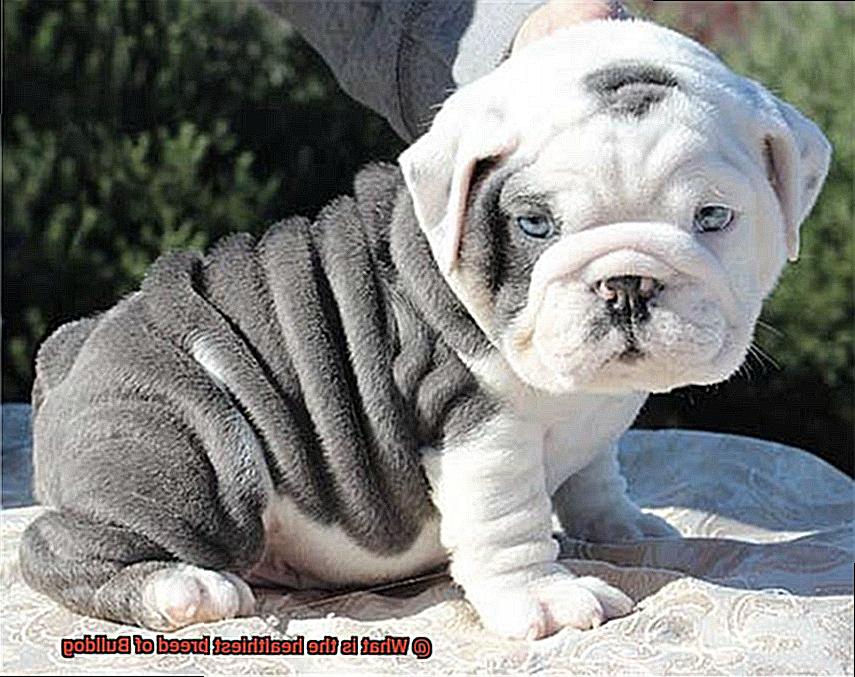
Health Issues Commonly Seen in Bulldogs
Contents
- 1 Health Issues Commonly Seen in Bulldogs
- 2 Olde English Bulldogge – The Healthiest Bulldog Breed
- 3 Alapaha Blue Blood Bulldog – A Robust and Lively Breed
- 4 Victorian Bulldog – Re-Designing a Healthier Version of the English Bulldog
- 5 Other Factors to Consider When Selecting a Healthy Bulldog Breed
- 6 Exercise Requirements for Keeping Your Bulldog Healthy
- 7 Nutrition and Diet Needs for a Healthy Bulldog
- 8 Regular Veterinary Check-Ups and Preventive Care for Bulldogs
- 9 Conclusion
Bulldogs, including French Bulldogs, are beloved pets known for their unique appearance and endearing personalities. However, it’s important for owners to be aware of the health issues commonly seen in Bulldogs to provide them with the best possible care. In this article, we’ll explore some of the most common health problems faced by Bulldogs, specifically focusing on French Bulldogs.
Brachycephalic Obstructive Airway Syndrome (BOAS):
French Bulldogs, like other Bulldogs, have a compacted skull structure that can result in breathing difficulties. BOAS occurs due to narrowed airways, making it challenging for French Bulldogs to breathe properly. This can lead to respiratory distress, snoring, and exercise intolerance.
Skin Issues:
French Bulldogs have adorable wrinkles and folds that require regular cleaning and maintenance. However, these features can also trap moisture and bacteria, leading to skin infections and irritations. Allergies and dermatitis are common skin problems among French Bulldogs.
Hip Dysplasia:
Hip dysplasia is a condition where the hip joint doesn’t develop properly, causing pain and mobility issues. French Bulldogs are prone to this condition due to their genetics and compact body structure. Regular exercise and weight management can help reduce the risk of hip dysplasia.
Eye Problems:
French Bulldogs are susceptible to various eye problems, including cherry eye (prolapse of the third eyelid gland), entropion (inward rolling of the eyelid), and dry eye (lack of tear production). Regular eye examinations by a veterinarian are crucial to detect and treat these issues early on.
Gastrointestinal Issues:
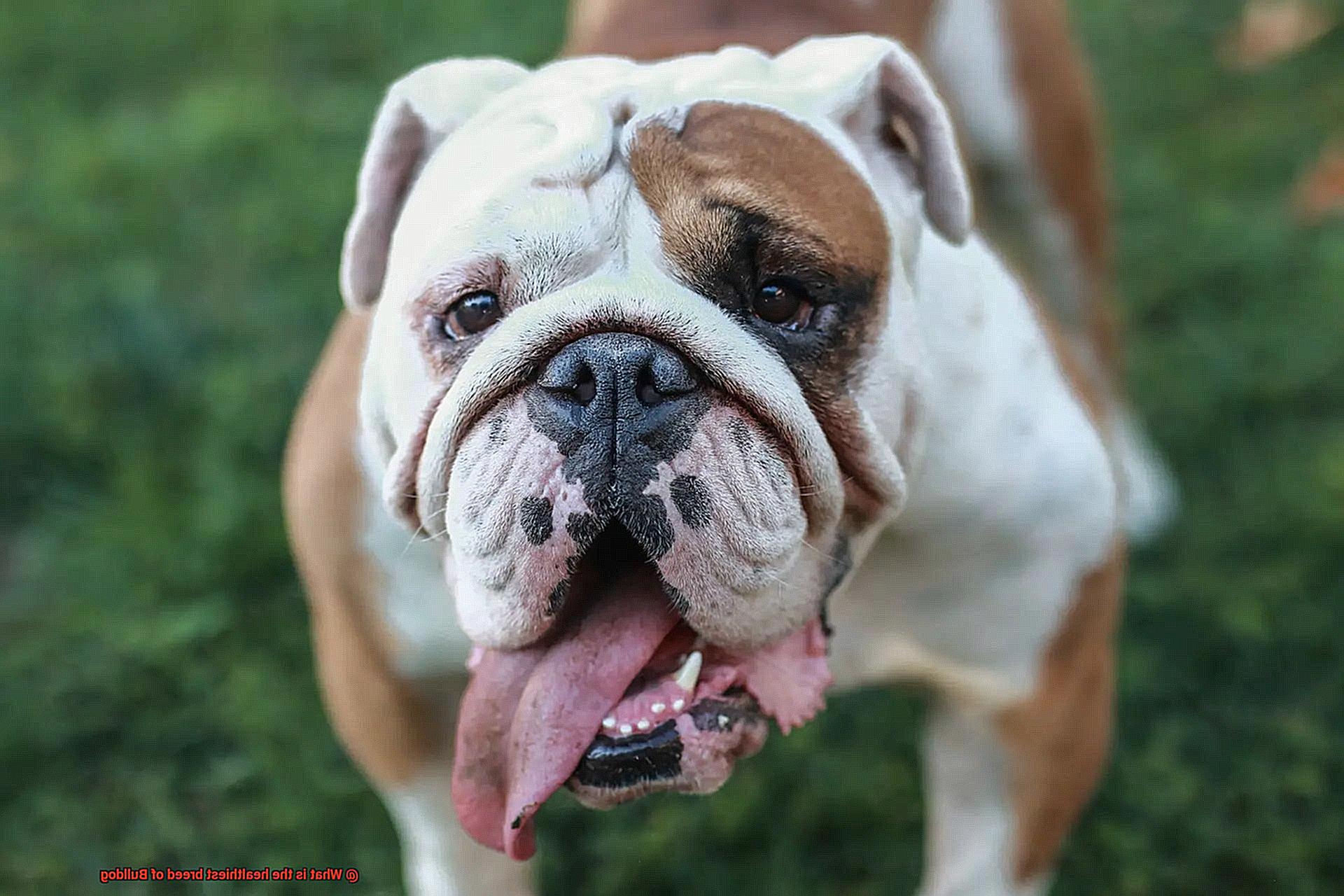
French Bulldogs may experience gastrointestinal issues like flatulence, bloating, and food allergies. Their sensitive digestive systems can be easily upset by certain foods. Maintaining a balanced diet and avoiding known food allergens can help manage these problems.
Obesity:
Due to their compact body structure, French Bulldogs are more prone to obesity. Extra weight can exacerbate existing health issues and put additional strain on their joints and respiratory system. A balanced diet and regular exercise are essential for maintaining a healthy weight in French Bulldogs.
Heat Sensitivity:
French Bulldogs have a compromised ability to regulate body temperature, making them more susceptible to heat stroke. It is crucial to keep them in a cool environment, provide plenty of fresh water, and avoid excessive exercise during hot weather.
Conclusion:
As a French Bulldog owner, understanding the common health issues seen in this breed is crucial for providing the best possible care. Regular veterinary check-ups, a balanced diet, and appropriate exercise are key to maintaining their overall well-being.
By being aware of these health concerns and taking preventive measures, you can ensure that your French Bulldog leads a happy and healthy life. Remember, your veterinarian is the best resource for personalized advice and guidance tailored to your specific Bulldog’s needs.
Olde English Bulldogge – The Healthiest Bulldog Breed
When it comes to bulldog breeds, the Olde English Bulldogge takes the crown for being the healthiest of them all. This breed was specifically designed to address the health issues that plague other bulldog breeds. Let’s dive into what makes them the top dog in terms of health and well-being.
Purposeful breeding for better health
The Olde English Bulldogge was developed in the 1970s by David Leavitt, who aimed to recreate the healthier and more athletic bulldogs of the past. This breed is a crossbreed of several dog breeds including English Bulldog, American Bulldog, Bullmastiff, and American Pit Bull Terrier. By carefully selecting these breeds, Leavitt was able to create a bulldog that is more robust and resilient.
Improved respiratory system
One of the biggest health issues faced by bulldogs is respiratory problems due to their flat faces. However, Olde English Bulldogges have a longer snout and wider airway, allowing for better breathing. This means fewer snorting and wheezing episodes, making them more comfortable and less prone to respiratory distress.
Wrinkled skin may be cute on a bulldog, but it also creates pockets where bacteria and moisture can accumulate, leading to skin infections. Fortunately, Olde English Bulldogges have a less wrinkled and looser skin compared to other bulldog breeds. This reduces the risk of skin issues and makes grooming easier.
Active and agile
Unlike other bulldog breeds that tend to be more sedentary, Olde English Bulldogges are known for their increased activity level and agility. Their improved athleticism helps prevent obesity and joint issues commonly seen in bulldogs.
Longer lifespan
With better overall health, Olde English Bulldogges have a longer lifespan compared to other bulldog breeds. On average, they live between 10 to 14 years, giving you more precious years to spend with your furry companion.
While Olde English Bulldogges are undoubtedly the healthiest bulldog breed, it’s important to note that they still require proper care and attention. Regular veterinary check-ups, a balanced diet, and regular exercise are crucial for maintaining their health and well-being.
Alapaha Blue Blood Bulldog – A Robust and Lively Breed
If you’re looking for a breed that combines strength, stamina, and playfulness, the Alapaha Blue Blood Bulldog might just be the perfect fit for you. This relatively new breed is known for its robust and lively nature, making it a popular choice for active individuals and families. In this article, we will explore why the Alapaha Blue Blood Bulldog stands out as one of the healthiest bulldog breeds.
Good Health Through Selective Breeding:
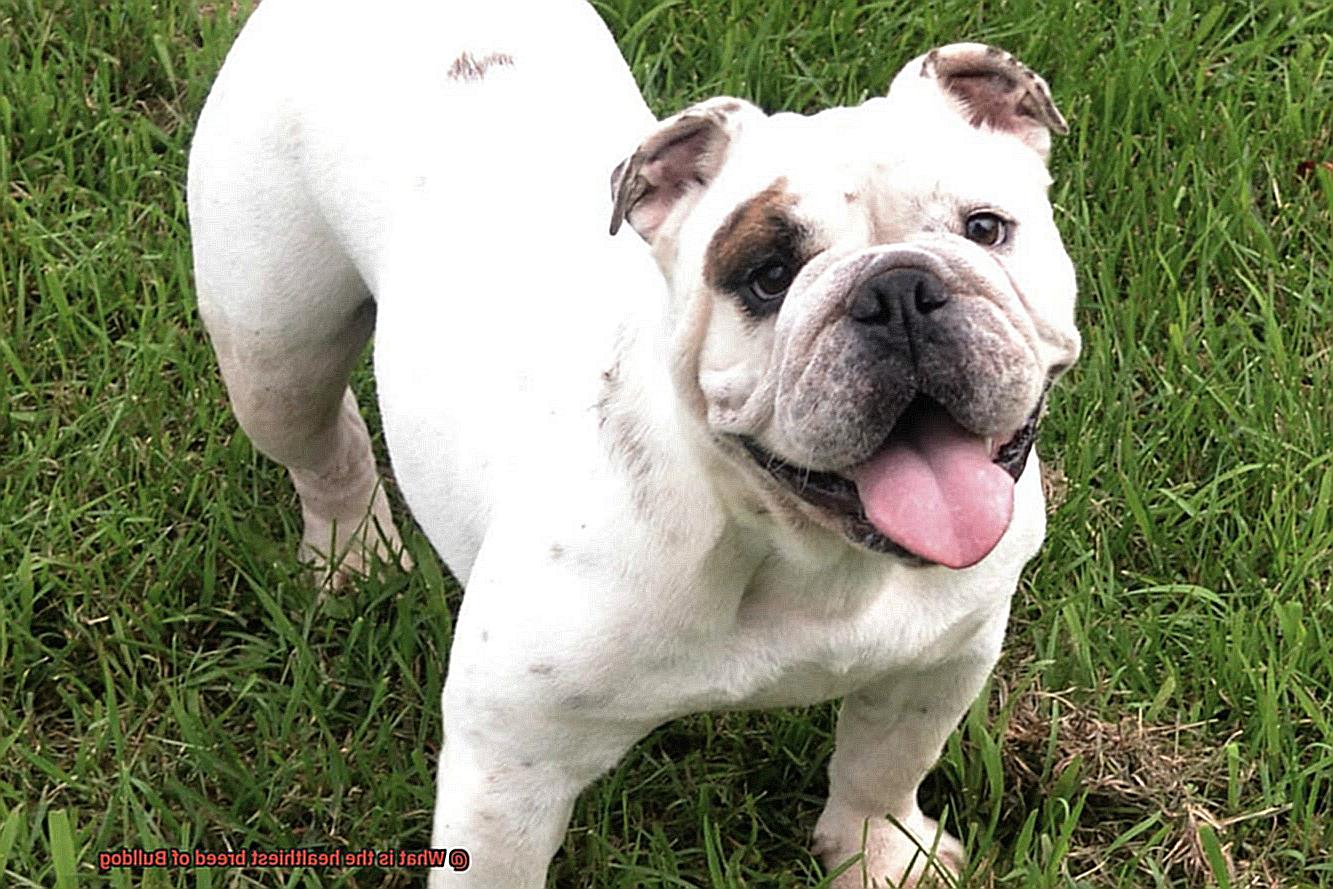
Unlike other bulldog breeds that often suffer from various health issues, the Alapaha Blue Blood Bulldog has been selectively bred to be a working dog rather than a show dog. This focus on functionality and athleticism has helped eliminate many genetic health problems commonly associated with Bulldogs. As a result, this breed enjoys good overall physical condition and has a strong immune system.

Genetic Diversity for Optimal Health:
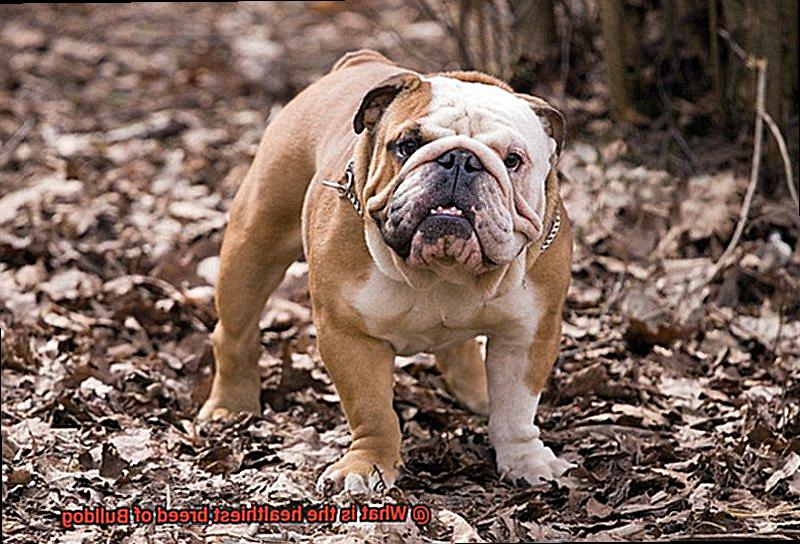
To further enhance the breed’s health, responsible breeders have introduced genetic diversity by outcrossing with similar breeds like the Catahoula Leopard Dog and the American Bulldog. This approach helps reduce the risk of genetic disorders and improves the overall well-being of the Alapaha Blue Blood Bulldog.
Fitness and Exercise:
The Alapaha Blue Blood Bulldog thrives on regular exercise and an active lifestyle. Their well-muscled bodies allow them to engage in various physical activities, such as jogging, hiking, or playing fetch. Regular exercise not only keeps them physically fit but also helps prevent obesity, which can lead to other health problems.
Potential Health Issues:
Although the Alapaha Blue Blood Bulldog is considered one of the healthiest bulldog breeds, it’s important to remember that no breed is completely immune to health issues. Some potential concerns for this breed include hip dysplasia, allergies, and eye problems. Regular veterinary check-ups and proper care are crucial for maintaining their optimal health.
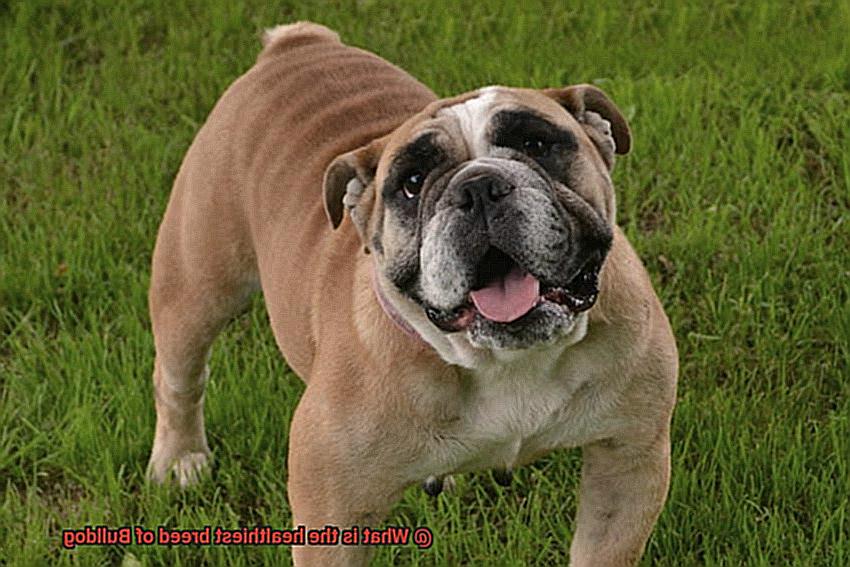
Victorian Bulldog – Re-Designing a Healthier Version of the English Bulldog
If you own a French Bulldog, you may be familiar with some of the health issues that can affect bulldog breeds. Breathing difficulties, skin infections, hip dysplasia – these are just a few of the problems that can plague our beloved companions.
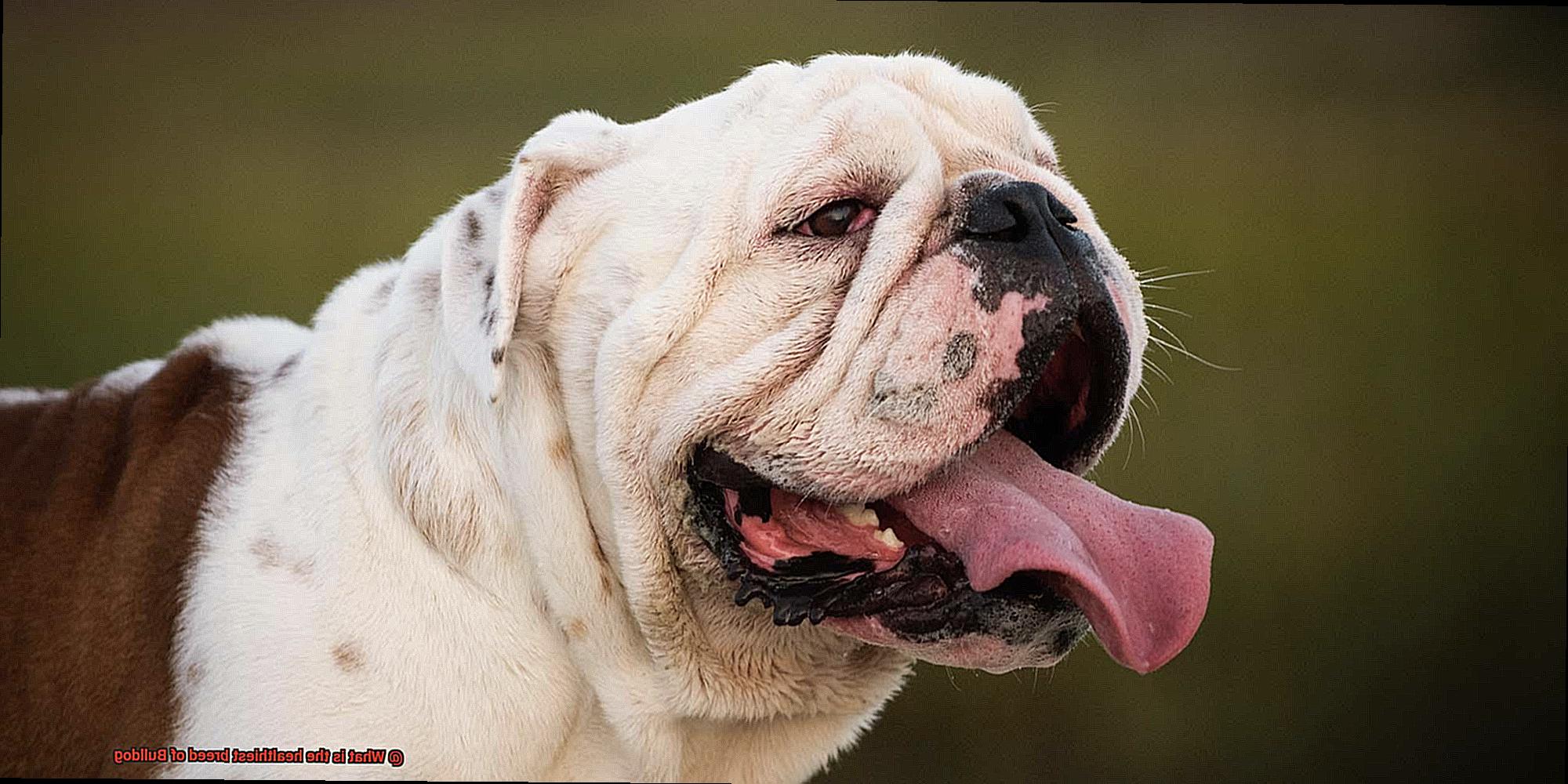
The Victorian Bulldog is a modern breed that has been specifically developed to address these health concerns and create a healthier version of the English Bulldog.
So, how exactly does one go about re-designing a healthier bulldog? Let’s break it down:
- Selective Breeding: Breeders of the Victorian Bulldog focus on selecting dogs with a more moderate build and fewer exaggerated features. This means choosing individuals with a slightly longer muzzle to improve airflow and reduce breathing difficulties. The head is also less wrinkled, which decreases the likelihood of skin infections. By breeding for these more moderate features, breeders aim to create a bulldog that is physically healthier and less prone to common health issues.
- Improved Body Structure: In addition to changes in facial features, the body structure of the Victorian Bulldog is also modified for better overall health. The body is more proportionate and athletic, reducing strain on joints and decreasing the risk of hip dysplasia. This means that Victorian Bulldogs are more agile and less likely to develop mobility issues as they age.
- Temperament: While English Bulldogs are known for their stubbornness and potential aggression, Victorian Bulldogs are bred to be friendly, sociable, and easygoing. This makes them more suitable as family pets and reduces the risk of behavioral issues. By prioritizing temperament in breeding programs, breeders aim to create dogs that are not only physically healthier but also mentally sound.
- Health Testing: To ensure that Victorian Bulldogs are as healthy as possible, breeders prioritize health testing and screening for known issues. This includes tests for conditions like hip dysplasia, eye disorders, and respiratory problems. By identifying and excluding dogs with these genetic predispositions from the breeding program, breeders can reduce the likelihood of passing on these health issues to future generations.


It’s important to note that re-designing a breed takes time and dedication. While the Victorian Bulldog has made significant strides in improving the health of the breed, there is still work to be done. Breeders must continue to prioritize health testing and responsible breeding practices to fully eliminate all genetic health issues. But with their efforts, they are creating a breed that is both physically and mentally healthier than its English Bulldog ancestors.
Other Factors to Consider When Selecting a Healthy Bulldog Breed
Here, we’ll delve into the essential factors you should consider when selecting a bulldog breed that will not only steal your heart but also bring you years of joy and companionship.
So, grab a cuppa and let’s dive in.
Physical Characteristics:
When it comes to physical features, Bulldogs come in various shapes and sizes. However, it’s important to choose a breed with more moderate characteristics. Exaggerated features like extremely short snouts or excessive wrinkles can lead to health issues, including breathing difficulties and skin infections. Opting for a breed with more balanced physical traits will ensure better overall health.
Temperament:
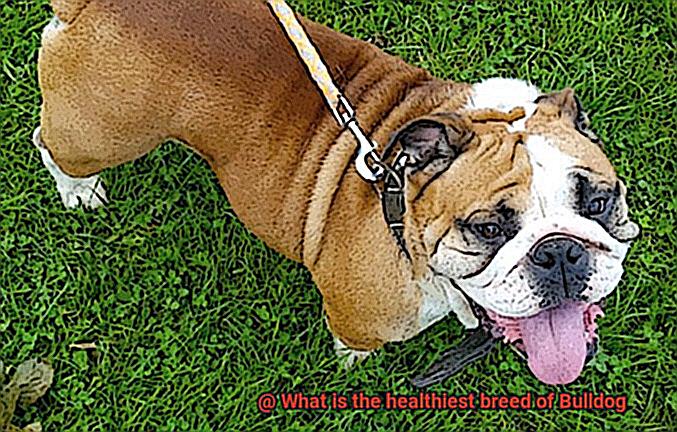
French Bulldogs are known for their friendly and calm nature, but different breeds may vary in temperament. Consider your lifestyle and preferences before making a decision. Some breeds may be more energetic and require more exercise, while others may be laid-back and relaxed. By selecting a breed that matches your lifestyle, you’ll create a harmonious bond between you and your pooch.
Genetic Health Concerns:
As with any purebred dog, Bulldogs are prone to certain genetic health conditions. It’s crucial to research common health issues associated with each breed before making your choice. Hip dysplasia, cherry eye, allergies, and respiratory problems are some of the common concerns in Bulldogs. Opting for a breed with healthier genetic lines can minimize potential health issues for your furry friend.
Breeder Reputation:
Choosing a reputable breeder is paramount when selecting a healthy bulldog breed. A responsible breeder prioritizes the well-being of their dogs by conducting health screenings on their breeding dogs, providing proper care and socialization for puppies, and offering lifelong support. Researching and selecting a reputable breeder increases the likelihood of bringing home a healthy bulldog.
Exercise and Activity Level:
Bulldogs have varying exercise requirements based on their breed. Some may need more physical activity to maintain a healthy weight and prevent obesity-related health issues, while others may require less exercise due to physical limitations. Understanding the exercise needs of different breeds ensures you can provide the appropriate level of activity for your bulldog’s optimal health.
Lifespan:
Consider the average lifespan of each bulldog breed when making your selection. A longer lifespan generally indicates better overall health and genetic predisposition to fewer health issues. Choosing a breed with a longer lifespan means you’ll have a healthy and happy bulldog companion by your side for many years to come.
Exercise Requirements for Keeping Your Bulldog Healthy
If you’re the proud owner of a French Bulldog, you know that they are lovable, playful, and sometimes a bit lazy. But just like any other dog, they need regular exercise to stay healthy and happy. In this guide, we’ll explore the exercise requirements for keeping your Bulldog in top shape.
- Daily Walks: Bulldogs may not be the most active breed, but they still need their daily exercise. A brisk walk for at least 30 minutes a day is a great way to keep them active and burn off excess energy. Plus, it’s a fantastic bonding time for you and your furry friend.
- Interactive Play: Bulldogs love interactive play sessions, such as fetch or tug-of-war. These activities not only provide physical exercise but also stimulate their minds and keep them mentally engaged. Get creative with their toys and find games that they enjoy.
- Swimming: Bulldogs are not natural swimmers due to their body structure, but many of them enjoy swimming once they get the hang of it. Swimming is a low-impact exercise that is easy on their joints and can be a refreshing activity during hot summer months.
- Mental Stimulation: Bulldogs are intelligent dogs that thrive on mental stimulation. Engage them in puzzle toys, obedience training sessions, or even agility courses to keep their minds sharp and prevent boredom. This will help prevent destructive behaviors as well.
- Monitoring Exercise: Bulldogs have short noses and can have difficulty breathing properly during intense physical activity. It’s important to monitor their breathing and prevent overexertion. If you notice excessive panting or struggling to catch their breath, it’s time to take a break.
- Weather Considerations: Bulldogs are sensitive to extreme weather conditions, particularly heat. Avoid exercising them during the hottest parts of the day and make sure they have access to shade and water when outside. Additionally, be cautious of extremely cold temperatures, as Bulldogs can also struggle in the cold.
Remember to consult with your veterinarian about the specific exercise needs of your Bulldog. They can provide personalized recommendations based on your pet’s age, health condition, and any specific concerns.
Nutrition and Diet Needs for a Healthy Bulldog
We all want our furry friends to live their best lives, and nutrition plays a crucial role in their overall health and well-being. So, let’s dive into the world of bulldog nutrition and diet needs to ensure our four-legged pals are living their healthiest, happiest lives.

- Chow Down on Balance: Bulldogs need a balanced diet that includes high-quality protein sources (chicken, beef, fish), complex carbohydrates (brown rice, sweet potatoes), and healthy fats (salmon oil, flaxseed). Just like us humans, they need a little bit of everything to thrive.
- Watch that Waistline: Bulldogs are prone to weight gain, so keeping an eye on their weight and body condition is important. Portion control is key. Feeding smaller, more frequent meals can help prevent bloating and aid in digestion.
- Avoid the Toxic Tummy Troubles: Did you know that some foods are toxic to our bulldog buddies? Steer clear of chocolate, onions, garlic, grapes, raisins, and anything with artificial sweeteners. Stick to dog-friendly treats like carrots or apples for guilt-free snacking.
- Pup-tastic Nutrition: Bulldog puppies have different nutritional needs than adult bulldogs. Make sure to provide them with a diet designed specifically for their growth and development. Consult with a veterinarian or canine nutritionist to create the perfect menu for your little munchkin.
- Hydration Station: Keep that water bowl filled to the brim. Bulldogs can be prone to dehydration, so providing fresh water at all times is essential for their health.
Remember, every bulldog is unique, so consulting with a professional can help tailor your pup’s diet plan to suit their specific needs and any health concerns they may have.
So, there you have it, folks – the lowdown on nutrition and diet needs for your French Bulldog. By giving them a balanced diet, monitoring their weight, avoiding toxic foods, and keeping them hydrated, you’re setting them up for a long and healthy life. Now go on, give your furry friend a big ol’ belly rub and get that tail wagging. Woof woof. 🐾
Regular Veterinary Check-Ups and Preventive Care for Bulldogs
Keeping your Bulldog healthy and happy is a top priority for any pet owner. Regular veterinary check-ups and preventive care play a crucial role in maintaining the overall well-being of your furry friend. In this blog post, we will explore why these check-ups are essential and how they can benefit your Bulldog.
Early Detection of Health Issues
Regular veterinary check-ups allow veterinarians to monitor your Bulldog’s health and catch any potential health issues early on. Bulldogs are prone to certain health problems like respiratory issues, skin allergies, and joint disorders. By detecting these issues early, the veterinarian can provide appropriate treatment and prevent them from becoming severe.
Thorough Physical Examination
During a veterinary check-up, the veterinarian will perform a comprehensive physical examination of your Bulldog. They will carefully inspect their eyes, ears, teeth, skin, and coat for any signs of abnormalities or infections. They will also listen to their heart and lungs to check for any respiratory issues. This thorough examination helps identify any hidden health concerns that may not be apparent to the naked eye.
Vaccinations for Disease Prevention
Vaccinations are crucial in preventing common diseases that can be life-threatening to Bulldogs. Your veterinarian may recommend vaccinations to protect against diseases like parvovirus, distemper, and rabies. These vaccinations help boost your Bulldog’s immune system and safeguard them against potential threats.
Parasite Prevention
Parasites like fleas, ticks, and worms can cause various health problems for Bulldogs. Regular preventive care measures such as flea and tick prevention treatments and deworming are essential in protecting your Bulldog from these pesky parasites.
Healthy Diet and Weight Management
Maintaining a healthy diet and weight is vital for Bulldogs. They are prone to obesity, which can worsen their existing health issues. Your veterinarian can provide guidance on appropriate nutrition and feeding practices to ensure your Bulldog maintains a healthy weight.
Dental Care
Bulldogs have a unique brachycephalic (short-nosed) structure, which makes them more prone to dental issues. Regular dental cleanings and proper oral hygiene practices can help prevent dental diseases and improve overall oral health for your Bulldog.
Discuss Concerns and Ask Questions
Regular veterinary check-ups provide an excellent opportunity for pet owners to discuss any concerns or questions they may have about their Bulldogs’ health. Your veterinarian can offer guidance on behavior, training, and other aspects of Bulldog care to ensure a happy and healthy life for your furry friend.
3mJtcZFxC8E” >
Conclusion
In conclusion, when it comes to determining the healthiest breed of Bulldog, it is important to consider several factors. While all Bulldogs are prone to certain health issues due to their brachycephalic nature, some breeds may have a slightly better overall health record than others.
One such breed is the Olde English Bulldogge. With its longer muzzle and less pronounced respiratory issues, this breed tends to have fewer breathing problems compared to other Bulldogs. Additionally, they are generally more active and athletic, which can contribute to their overall well-being.
Another healthy option is the American Bulldog. This breed has a more moderate build and fewer genetic health issues commonly seen in other Bulldogs. They tend to have better joint health and are less prone to obesity-related problems.
Lastly, the Victorian Bulldog deserves mention for its relatively healthier stature. Bred specifically for improved health and vitality, this newer breed has a longer lifespan and reduced risk of certain hereditary conditions.
It’s important to note that while these breeds may be considered healthier than others within the Bulldog family, they still require proper care and attention from responsible owners. Regular exercise, a balanced diet, routine veterinary check-ups, and avoiding excessive heat or stress are crucial for maintaining their well-being.
In conclusion, if you’re considering adding a Bulldog to your family and prioritize their health above all else, exploring these healthier breeds like the Olde English Bulldogge, American Bulldog, or Victorian Bulldog could be a good starting point. Remember that every dog is an individual with unique needs, so it’s essential to research specific bloodlines and choose a reputable breeder who prioritizes breeding for health.




